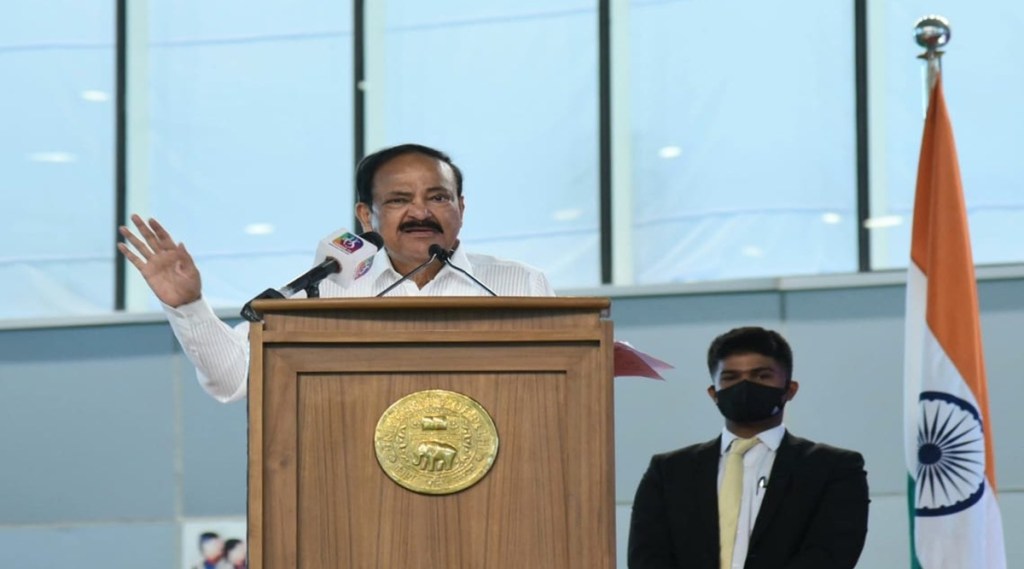Vice President M Venkaiah Naidu threw his weight behind education in the mother tongue amid constant allegations of Hindi imposition by the Centre. Naidu, who was speaking at the centenary celebrations of Delhi University, said the local language must be the main mode of communication in administration and courts. “Every gazette notification and government order should be in the local or native language so that the common man understands it,” he added.
Naidu also backed the National Education Policy’s (NEP-2020) emphasis on imparting basic education in the mother tongue. Describing the policy as far-sighted, Naidu said it would be a game changer and revolutionise Indian’s educational landscape when implemented in schools and colleges.
Union Home Minister Amit Shah sparked outrage last month when he said people from different states should communicate with each other in Hindi. However, following backlash from several non-Hindi speaking states, Shah clarified that Hindi should take the place of English and not the local language. Shah said at the 37th Parliamentary Official Language Committee meeting that 70% of the Union Cabinet agenda was written in Hindi, adding that Prime Minister Modi had decided that the government would be run through Hindi.
The Vice President also called for taking higher education to rural areas and making it inclusive and equitable. He said equitable access to education was critical as it played a crucial role in human development, nation building, and creating a prosperous global future.
Emphasising that universities needed to come up with innovative ideas to address society’s problems, Naidu said the ultimate aim of research should be to make people’s lives happier and more comfortable. He also pointed to India, which has the largest youth population in the world, and called to harness the collective power of human resources for nation building.
Naidu also expressed his wish to see Indian universities among the top 10 global universities and urged all stakeholders to work towards this aim. He also observed that education was not merely for employment but enhancement of knowledge and enlightenment. He added that education was a lifelong process and did not end with the acquisition of degrees.

